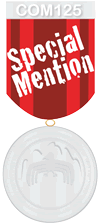
Introduction
Rosen wrote about the Portraits of Grief published in the New York Times after 9/11, an attempt “to give a snapshot of each victim’s personality, a life lived”. On the other hand, its critics contended that the Portraits “had managed to homogenize them instead” (Rosen, 2004). Instead of dissecting the rights and wrongs of the Portraits of Grief, however, we should attempt to understand the motivations behind the individual’s willingness to reveal personal details to complete strangers.
Motivations
It is my understanding that people are so eager to become members of the Naked Crowd due to social proof – where “we view a behavior as correct in a given situation to the degree that we see other performing it” (Cialdini, 2001). With the rise of the blog, as well as, social networking sites like YouTube and MySpace, it is little wonder that so many people are posting snippets of personal information online.
Individuality & Self-censorship
Unfortunately, in their attempts to stand out from the crowd and make themselves identifiable as unique individuals, many netizens have not only forsaken their privacy but may have caused others to misunderstand them as well. Individuals are unique insofar as they are able to express their individuality, an element of self that is difficult to accurately share with others in its complexity. This problem is compounded by self-censorship, an imposition that makes one present an image of their choosing to the world. Thus, many of them are “judged out of context” (Rosen, 2004).
Sousveillance & Me: A Mini Case Study
“Personal sousveillance is the art, science, and technology of personal experience capture, processing, storage, retrieval, and transmission” (“Wikipedia: Sousveillance”, 2007). By taking photographs and videos of ourselves and others then uploading them – to blogs, Facebook, and YouTube, to name a few, we are actually enabling others to infringe upon our privacy.
I recall my surprise on the first day of school when Kevin flashed a picture of myself I had recently uploaded on to Facebook. Till then, the ease with which a total stranger could access my personal profile and consequently my blog, had not crossed my mind.
From the aforementioned, it can be inferred that I have yet to take the necessary precautions to ensure my privacy online. In fact, I have purposefully posted my blog address on the various accounts I have on social networking sites. Fortunately, I have yet to have had any truly nasty experiences from posting my personal information online.
According to the results of a content analysis conducted on blogs created by teenagers aged between thirteen and seventeen, teenaged bloggers “reveal a considerable amount of personal details including real name, age, and location, as well as a variety of ways to contact them”. Even more worrisome are the revelations of their personal lives that may result in “cyberstalking, sexual predation or cyberbullying” (Huffaker, 2005).
Personally, I have navigated the Internet ‘minefield’ by refraining from posting my address or telephone number on any social networking site and even my personal blog. At most, I reveal my email address and blog address, avenues which I can easily make private by blocking unwanted individuals or password locking, respectively.
Conclusion
In conclusion, I have realized that it pays to be aware of what information I put online for the world to see, and that there is a fine line between building a believable online identity and forsaking my privacy altogether.
References
Cialdini, R. (2001). Influence: Science and Practice. Allyn and Bacon: Singapore
Huffaker, D. (2005). Teen Blogs Exposed: The Private Lives of Teens Made Public. Retrieved March 9, 2007 from http://www.soc.northwestern.edu/gradstudents/huffaker/papers/Huffaker-2006-AAAS-Teen_Blogs.pdf
Wikipedia: Sousveillance. (2007, February 7). In Wikipedia, The Free Encyclopedia. Retrieved March 9, 2007 from http://en.wikipedia.org/wiki/Sousveillance

1 comment:
Take a look at this Felicia... special book prizes for books made from blogs. Weird, but what's also interesting is this thing called "flicktions", which are writings based on photos (e.g. post secret postcards)
http://news.bbc.co.uk/1/hi/technology/6446271.stm
Post a Comment